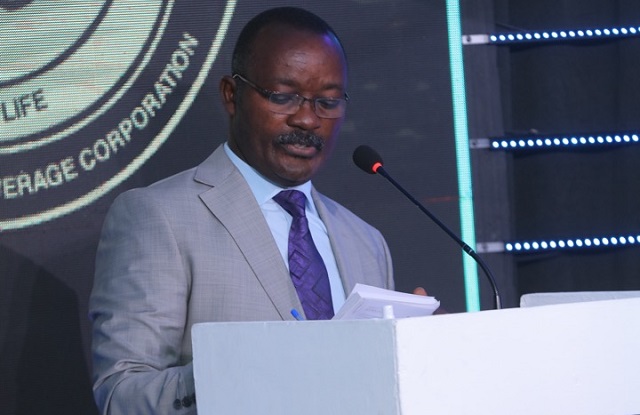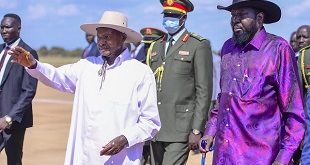
Kampala, Uganda | THE INDEPENDENT | The managing director of National Water and Sewerage Corporation (NWSC), Eng. Silver Mugisha has criticized politicians advocating for the scrapping of taxes on water consumption.
Mugisha says such ideas will result in lack of access to clean water by the community.
Mugisha made the remarks during the 2020 Water Baraza, an online webinar held under the theme “Delivering the promise of water for all.”
He was responding to a concern raised by Ronald Balimwezo, the Nakawa Mayor who called on the government to scrap the 10% Value Added Tax (VAT) on water. Balimwezo blamed the VAT on the high cost of water that has forced most urban dwellers to use unsafe water points like wells and streams.
Balimwezo who is vying for MP, Nakawa East said that the only way to prevent water-borne diseases is to have cheaper water and ensure that people do not collect water contaminated with faecal matter.
However, Mugisha told off Balimwezo noting that NWSC sells a 20-litre jerry can of water at 85 Shillings which money caters for the cost of treating water and creating new infrastructure.
The exemption of VAT on the supply of water to domestic consumers was lifted in 2012/2013 financial year budget speech by the former Minister for Finance, Maria Kiwanuka. She announced then that the introduction of VAT would generate 24 Billion Shillings in revenue to government.
Although the proposal to tax water was widely opposed by both parliament and civil society, prompting the government to postpone its implementation, the proposal was later adopted.
Mugisha added that the majority of people with access to clean and safe water are rich people and the VAT being paid is used to lay infrastructure to connect the rest of the country to piped water.
Mugisha revealed that the corporation has now extended to 258 towns and projects to reach 400 towns by 2025, while the connections now stand at 724,000 connections, from 530,000, five years back.
*****
URN
 The Independent Uganda: You get the Truth we Pay the Price
The Independent Uganda: You get the Truth we Pay the Price



